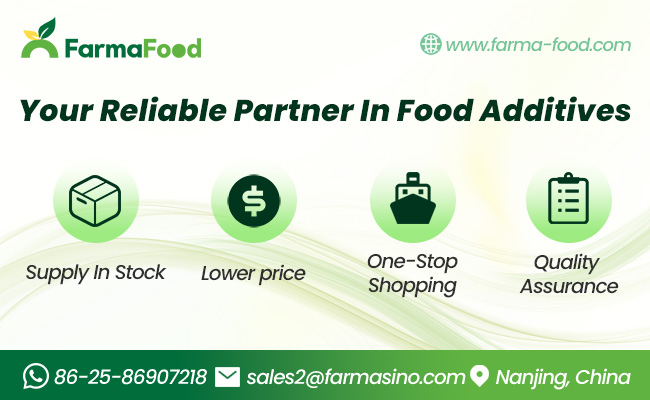Vitamin E is an important fat-soluble vitamin with powerful antioxidant effects on human health. As a nutritional supplement and preservative, vitamin E has a wide range of applications in the field of food additives. In this article, we will discuss the role of vitamin E, its sources and uses in food, and introduce the related safety and regulatory requirements.
I. Role of Vitamin E Vitamin E is a powerful antioxidant that protects cells from free radical damage and reduces the risk of inflammation and disease caused by oxidative stress. It also benefits cardiovascular health, improves immune system function and promotes healthy skin. Vitamin E also has functions such as anti-aging, promoting reproduction and regulating estrogen.
Second, sources in food Vitamin E is mainly found in vegetable fats and nuts. For example, soybean oil, palm oil, olive oil, peanut oil and malt oil are rich in vitamin E. In addition, grains, vegetables and fruits also contain small amounts of vitamin E, but relatively low.
Third, the application of vitamin E in the field of food additives
Antioxidant: Vitamin E, as a natural antioxidant, can prevent oxidation and deterioration of food fats and other ingredients. It can extend the shelf life and stability of food, inhibit the growth of bacteria and mold, and maintain the color and taste of food.
Stabilization of fats: Vitamin E maintains the stability of fats and oils, preventing them from oxidative deterioration during preparation and storage. This is very important in the preparation of various foods such as pastries, breads and nuts.
Additives for seasonings: Vitamin E can be used as an additive for seasonings to enhance the nutritional value and antioxidant effect of the product and, at the same time, improve the flavor and texture of the seasonings.
IV. Safety and regulatory requirements The safety of vitamin E as a food additive has been extensively researched and evaluated. Several international organizations have established safe intake levels for Vitamin E. In the United States and Europe, the maximum use limit for vitamin E is calculated as the total intake (mg/day), which varies according to the type of food and the population. It is also important to take care not to exceed the recommended maximum daily intake to avoid adverse effects caused by vitamin E overdose.
Conclusion: Vitamin E, as an important fat-soluble vitamin, plays an important role in the field of food additives. Its antioxidant properties not only contribute to food preservation and quality stability, but also positively affect human health. However, the use of vitamin E as a food additive requires strict adherence to relevant safety and regulatory requirements to ensure its safe use.
